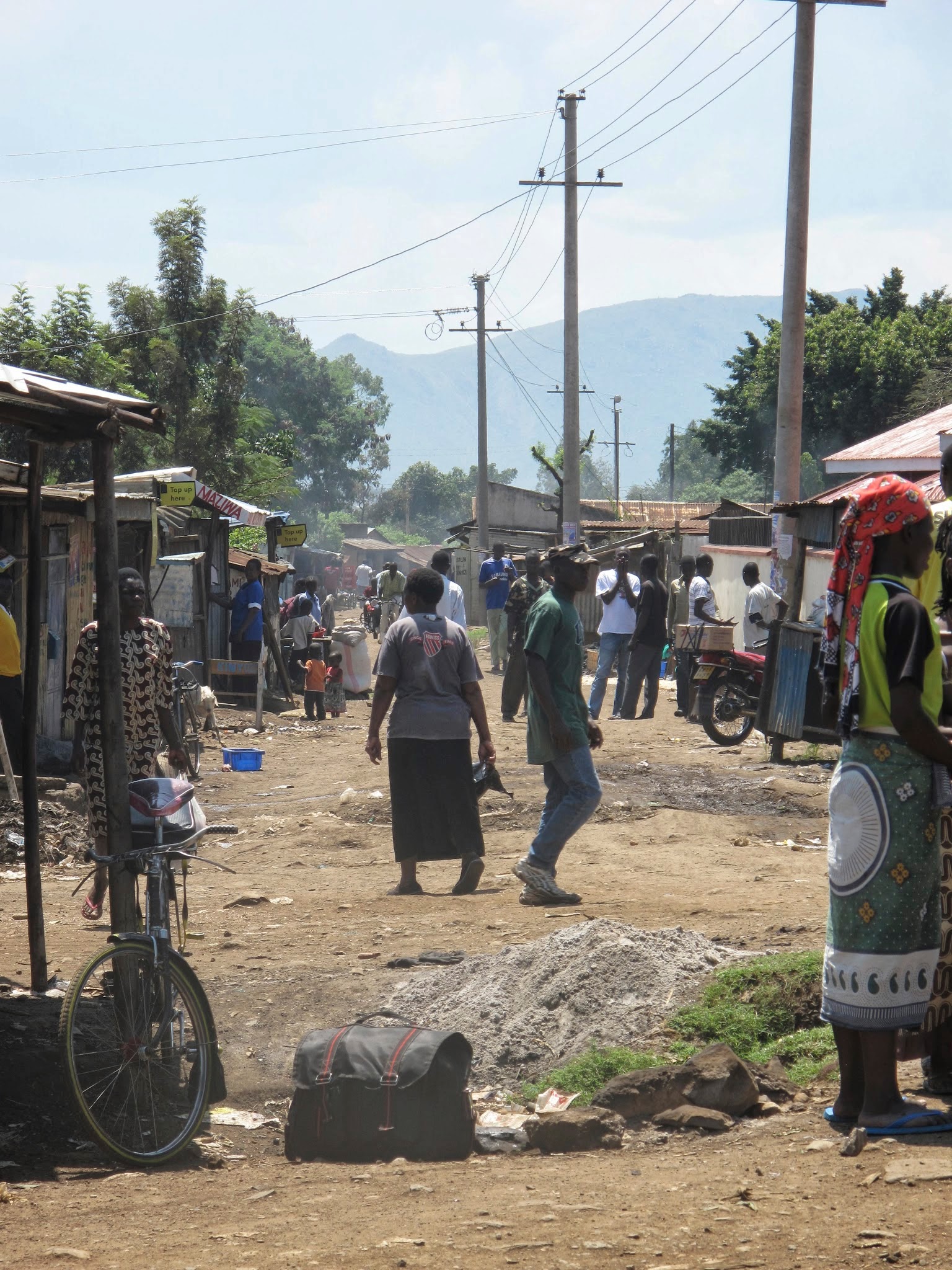For our students, the vast majority of them were born in a
slum called Obunga. It is the only
community they know. It is hard, but it is home. That doesn’t mean they want to
leave it the way it is, but, much of the time, they lack resources and
knowledge on how to improve it. That is
one of the reasons Ndoto began. Our vision is to see forgotten slum communities
transformed from the inside out. We want to give this upcoming generation the
tools they need to bring lasting change to their community. We want to allow them to dream for a different Obunga.
Obunga is a slum in the northwest part of Kisumu, Kenya,
which is right on the edge of Lake Victoria. It houses around 15,000-20,000
people, most of whom are young men and women with
little education. Parents usually have
many children and try to provide but can only do so by working random and
inconsistent jobs. People come to
Obunga from many villages in the countryside but once they land there, they
rarely leave.
Obunga has a character all its own that brings many challenges. A lack of capital and jobs keeps residents
entangled in poverty, and forces some into desperate jobs like prostitution. The
community has two primary businesses: selling fish and the brewing of illegal alcohol.
Since Obunga is near Lake Victoria, the opportunity to buy
and sell fish should be a great one. However,
the factories get the fish first, remove the fillets, and then sell the remains
of the fish to women called fishmongers. These women will be up in the wee
hours of the morning, work very hard all day, and at the end of the week, they
may have gotten 2 bags of fish, or there may have been nothing to sell. When
it’s all said and done, a fishmonger will make at best $200 USD in a month. One of the many problems with this business
is that it is so unpredictable, which leaves families unstable and without
provision much of the time.
 |
| The remaining part of the fish that women from Obunga have to sell. |
Largely, if the women don’t sell fish, they brew
alcohol. The bad news: the two brews
made in Obunga, chang’aa “kill me quick” and busaa, are both illegal. The worse
news: the brew contains substances such as jet fuel, formaldehyde, and battery
acid to make it more potent, and in turn incredibly lethal. Because it is illegal, the women who brew the
alcohol have to consistently bribe police to stay in business and not go to
jail. Without bribes, a brewer might
make upwards of $12 USD per week. The
work of brewing alcohol is incredibly tough from morning to night. Women haul molasses, take 2-3 days to make
the brew, and are often harassed from customers that have had one too many
drinks. It is a popular pastime of mostly male community residents. Most men in the community usually work as
motorcycle taxi drivers, handcart pullers, or construction workers.
These industries are incredibly inconsistent, extremely hard
work, and often times less than desirable, but these women will do whatever it
takes to provide for their families.
Most parents have not been to school past 8th grade, and are,
therefore, untrained for more promising jobs. It is a rare few that can fight
their way through the system to make a different life for themselves and their
families.
This is why we are giving the next generation opportunities
to further their education and be more able to change their community. We want to raise up students that love their
community and want to see it grow. We dream of a different Obunga that is
improved and changed by its very own residents, an Obunga that is redeemed for
the name of Jesus Christ and restored for His glory to the newness of life. We
dream of seeing Isaiah 61:4 come to fruition: “They will rebuild the ancient
ruins and restore the places long devastated; they will renew the ruined cities
that have been devastated for generations.”









